Northern Beaches Hospital: How one man’s amazing survival against the odds has inspired the doctors and nurses who saved him
A doctor who helped save one of the sickest patients he has ever seen, says Jason Miller is a reminder of why you should never give up on someone, even when the odds are stacked against them.
Single dad Jason Miller, known as Buddy to his mates, is desperately grateful for the extraordinary lengths doctors and nurses went to at Northern Beaches Hospital to save his life - despite being left with the most horrific injuries.
His life was saved but his hands and feet were so badly injured they had to be amputated.
Nevertheless, Mr Miller’s enthusiasm for his future has left its impact on those who fought to keep him alive.
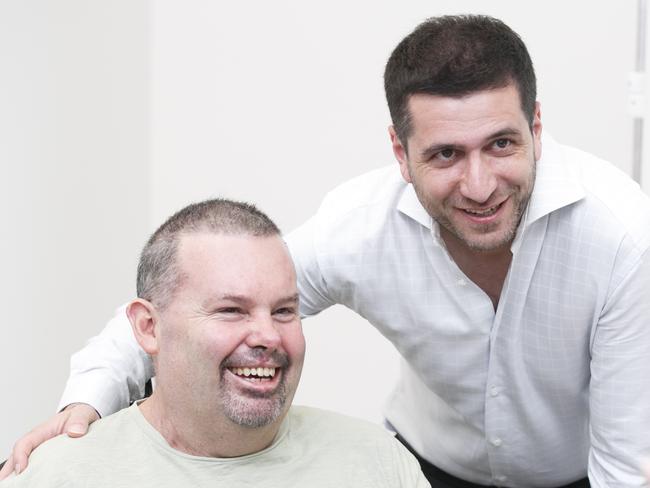
For the first time, in a heartfelt interview, the lead doctor in intensive care on the night Mr Miller arrived — Maziar Razavian, or Dr Maz to his patients — tells how it has affected and inspired him to keep fighting for patients even when the odds are stacked against them.
“When I told his family he had a 10 per cent chance of survival, I walked away thinking it was actually less than one per cent,” Dr Razavian said.
“He was one of the sickest patients I have had in a long time.
“During the resuscitation he got so sick we were not sure he was going to survive.
“At times we even questioned what we were doing. Was it futile? Was there any hope he would survive? We were trying to save him for hours.
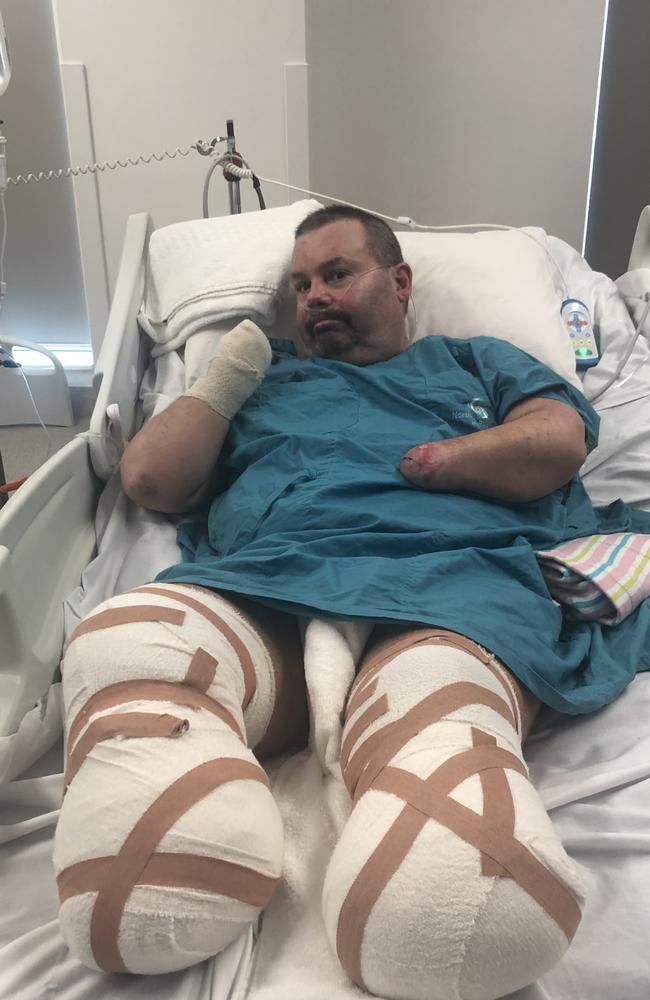
“You rarely see a person that sick survive. These questions were asked multiple times.”
Mr Miller, 48, a single dad, of Queenscliff, collapsed in the Emergency Department on October 31 after he developed sepsis, a condition caused by bacteria finding its way into the bloodstream. In Mr Miller’s case he was fighting two bugs, streptococcus, which is common and causes lots of nasty infections, and aerococcus, which is extremely rare.
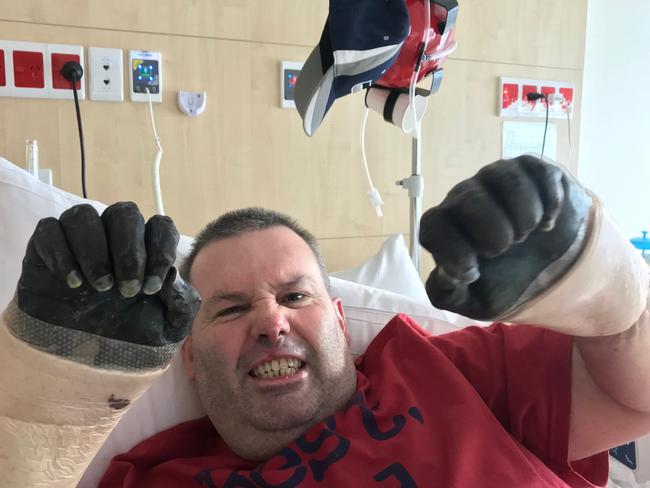
It was a bug that Dr Razavian had never come across before in his 20-year career.
He said when bacteria gets into the bloodstream it can multiply and the body sometimes responds to the toxins in such a way that it causes the major organs to fail.
“With severe sepsis there’s a drop in blood pressure and then the organs start to fail and, as each one does, it speeds up the shutdown of the others,” Dr Razavian said.
“It’s a downward spiral where all the vital organs get damaged and shut down. As every organ relies on other organs the spiral gets out of hand and the shutdown occurs at ever-increasing speeds.
“If we don’t intervene to break the spiral, patients generally die.”
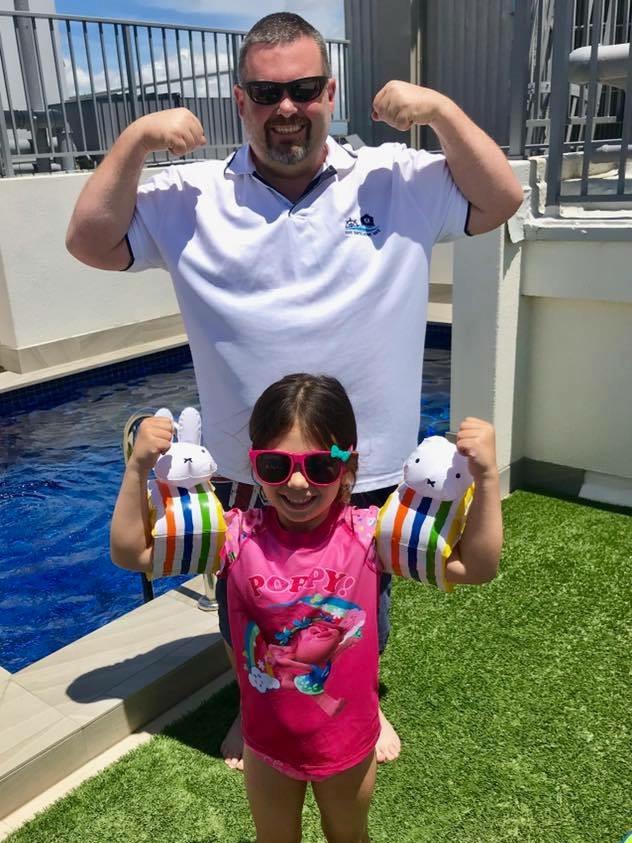
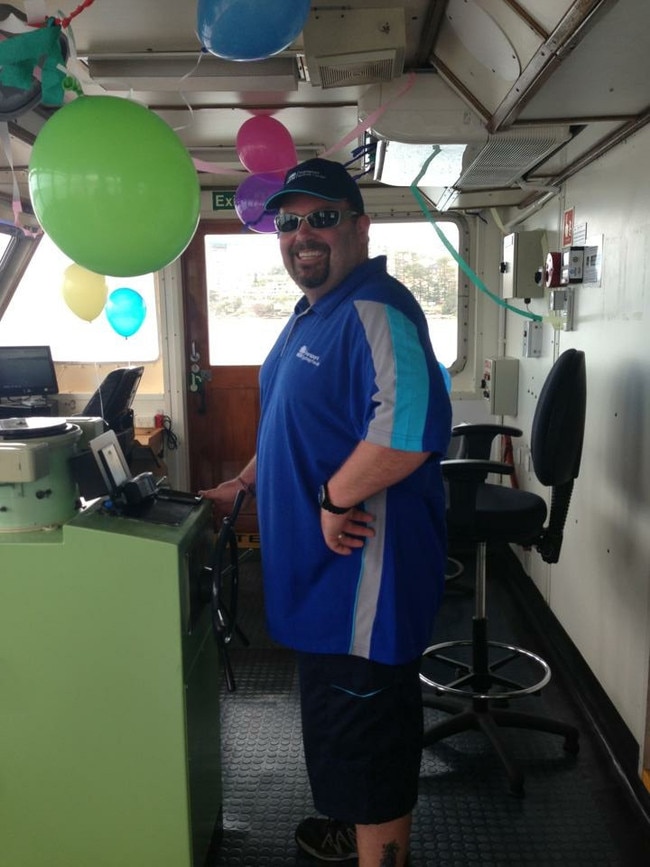
Dr Razavian said a team of three doctors and five or six nurses fought to resuscitate Mr Miller in emergency and then, in intensive care, he needed further resuscitation.
He said the equipment at Northern Beaches Hospital is world class and allowed them to hook him up to machines which were substituting the work of his organs, as well as pumping him full of industrial levels of drugs and antibiotics.
“We spent two days trying to keep him alive before he stabilised,” Dr Razavian said.
“In intensive care nurses were going over and beyond. They worked very hard. Most of the night they had seven or eight people working on him.
“It was one of the toughest resuscitations we’ve had — that was everyone’s experience.
“As you are resuscitating a patient you always keep in mind the person behind all this, that we are dealing with a human life.”
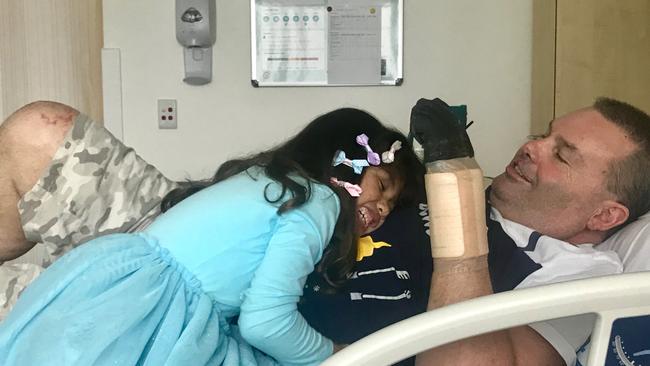
He said they had no idea how Mr Miller would react on awakening from his induced coma to learn he would lose his hands and feet.
“It’s almost hard to imagine people that go through these things and how they cope with it,” Dr Razavian said. “I’ve seen people have the most horrific injuries and survive and are thankful for what they have got.
“They go on to have a meaningful life. You compare them to your own life and that of your colleagues and they are more positive and happier with their lives than we are. Sometimes when you have a young patient you do push the boundaries, you work through everything you can and you get surprised such as in this case.”
TO SUPPORT BUDDY GO TO GOFUNDME.COM/OURBESTBUDDY
He said he quickly formed a bond with Mr Miller’s family, who were camped out in the waiting room.
“You get emotionally invested in the patient’s survival, its human nature,” Dr Razavian said. “We can never really switch off. You are not dealing with a car but a human being. It was definitely very nice to see him down the track and chat to him.
“He’s been inspiring and positive and a funny guy.
“I was almost shocked by his positivity. A colleague told me when he woke up he was not sure he had taken it all in because of the level of his positivity. It’s not how most people would wake up in that situation.
“Most people would want to crawl in a hole.
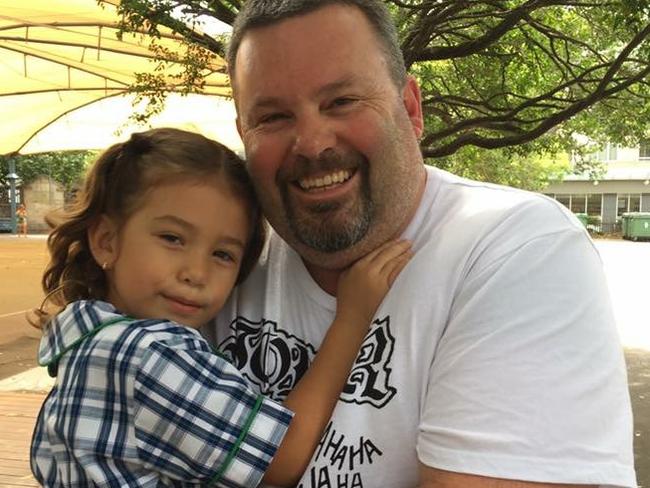
“It soon became apparent he had grasped the gravity of the situation.
“His attitude was just, ‘Shit happens — I will get back up on my feet and do what is necessary to get on with my life’.
“I think it will be a lot of hard work but he will have a more fulfilling life and enjoy his life more than the average person out there.
“For doctors and nurses who look after patients like this it’s inspiring and also a humbling reminder.
“When we deal with patients very sick in ICU we do need to see outcomes like this to remind us why we do what we do.
“We have a lot of deaths in ICU and we can try for a while but it becomes quite clear there is no hope.
“Easy for people to question themselves.
“This is a prime example of why people can cope with anything. It’s never for us to make the
decision what quality of life means to someone.”
Dr Razavian also spoke positively about Northern Beaches Hospital which has been criticised heavily since it opened in October.
He said while he was not a spokesperson for the hospital and just a person who does a bit of work there, he said he hoped the community would get behind the facility.
He said if this had happened a year ago and Mr Miller had collapsed at Mona Vale Hospital he would not have survived.
“I’ve previously worked at Manly and Mona Vale for many, many years,” he said.
“The equipment, personnel, nurses everything we have available to us now compared to what we had previously — there’s no comparison.
“I can see there are a lot of teething problems. But we have so much more at our disposal.
“I would not have kept this man alive if he came to Mona Vale Hospital.
“He would have died. This man was really sick he could not have been transferred in an ambulance. Just moving him to an ambulance he would have died.”
To support Buddy Miller go to g ofundme.com/ourbestbuddy.


